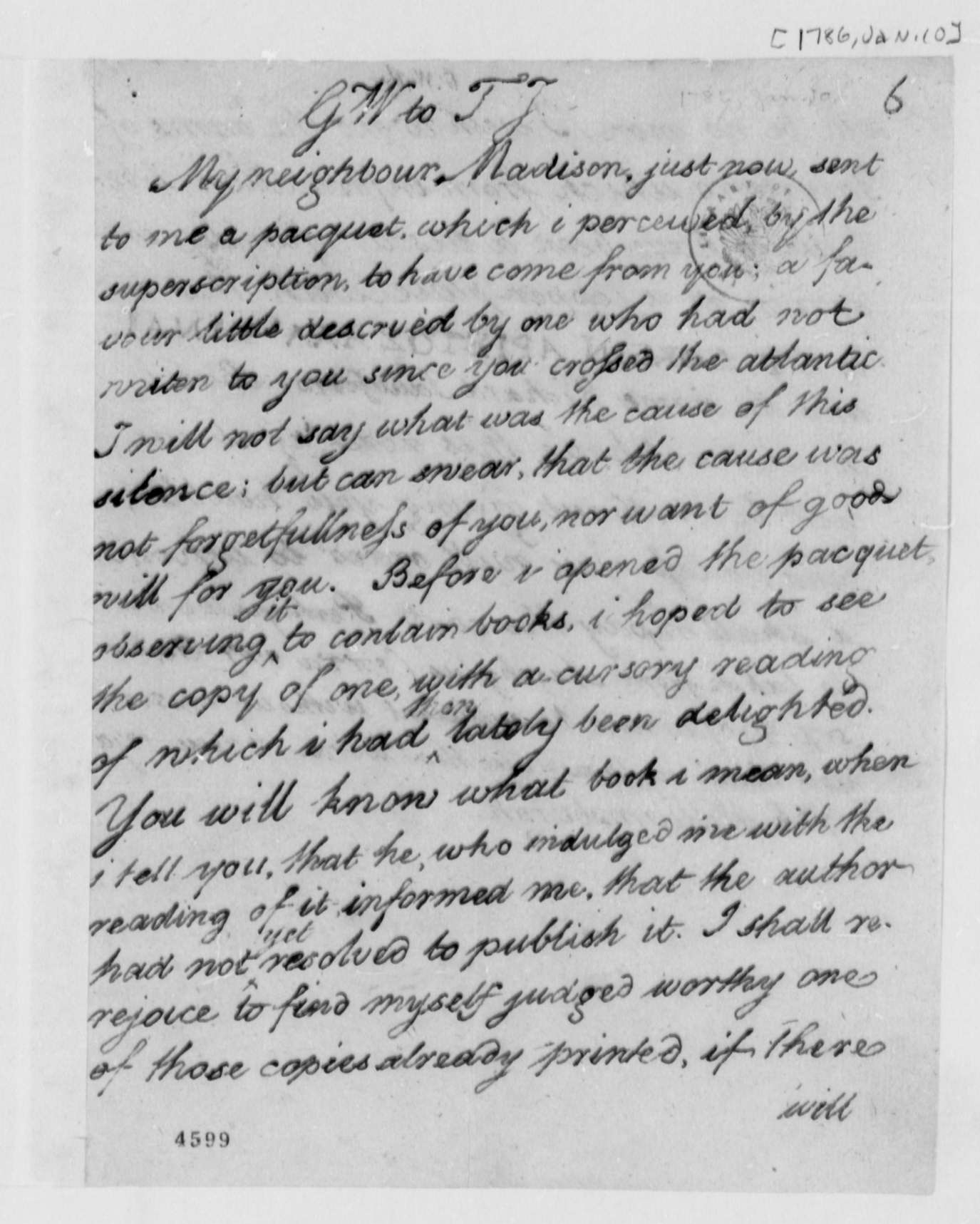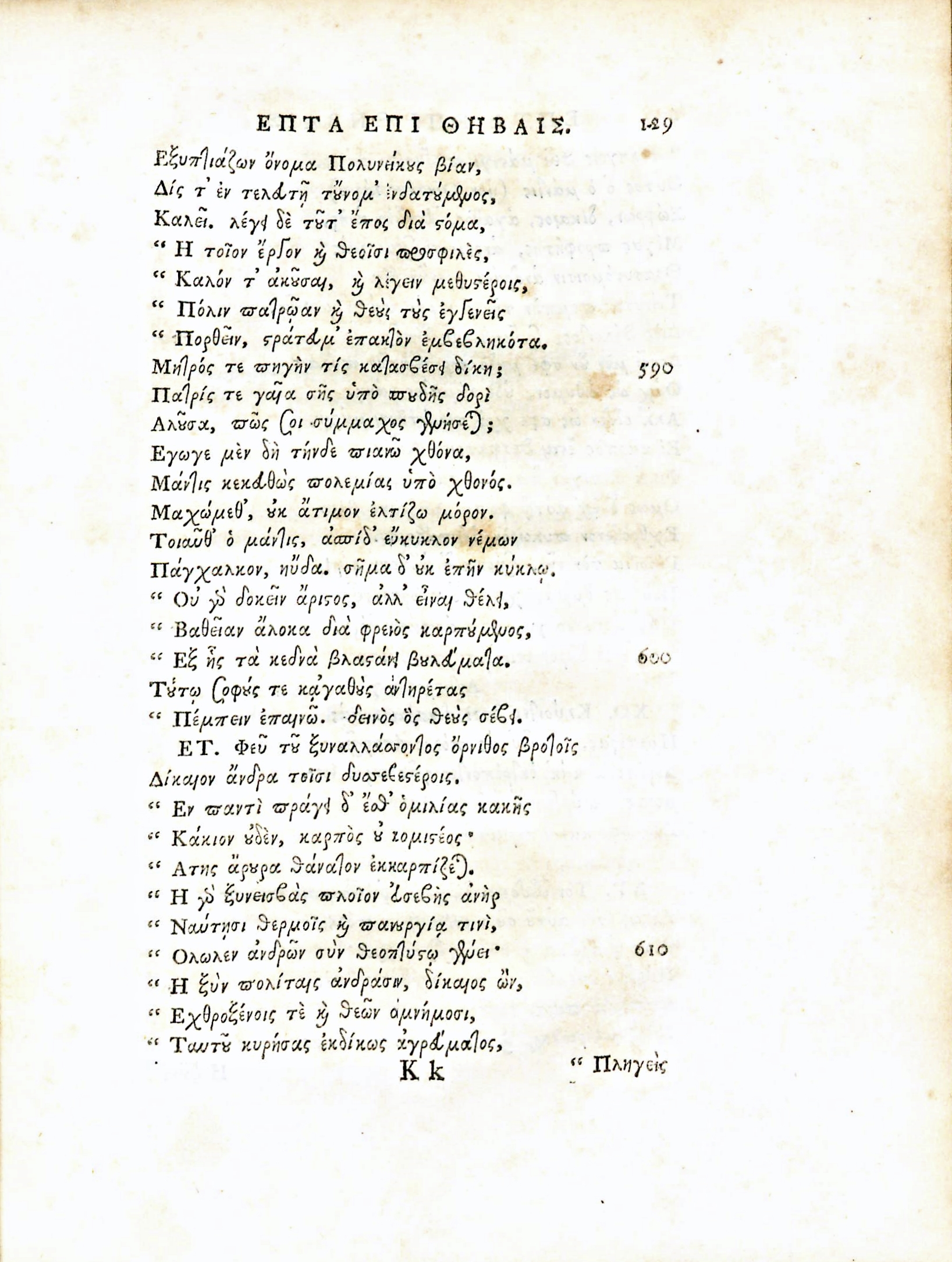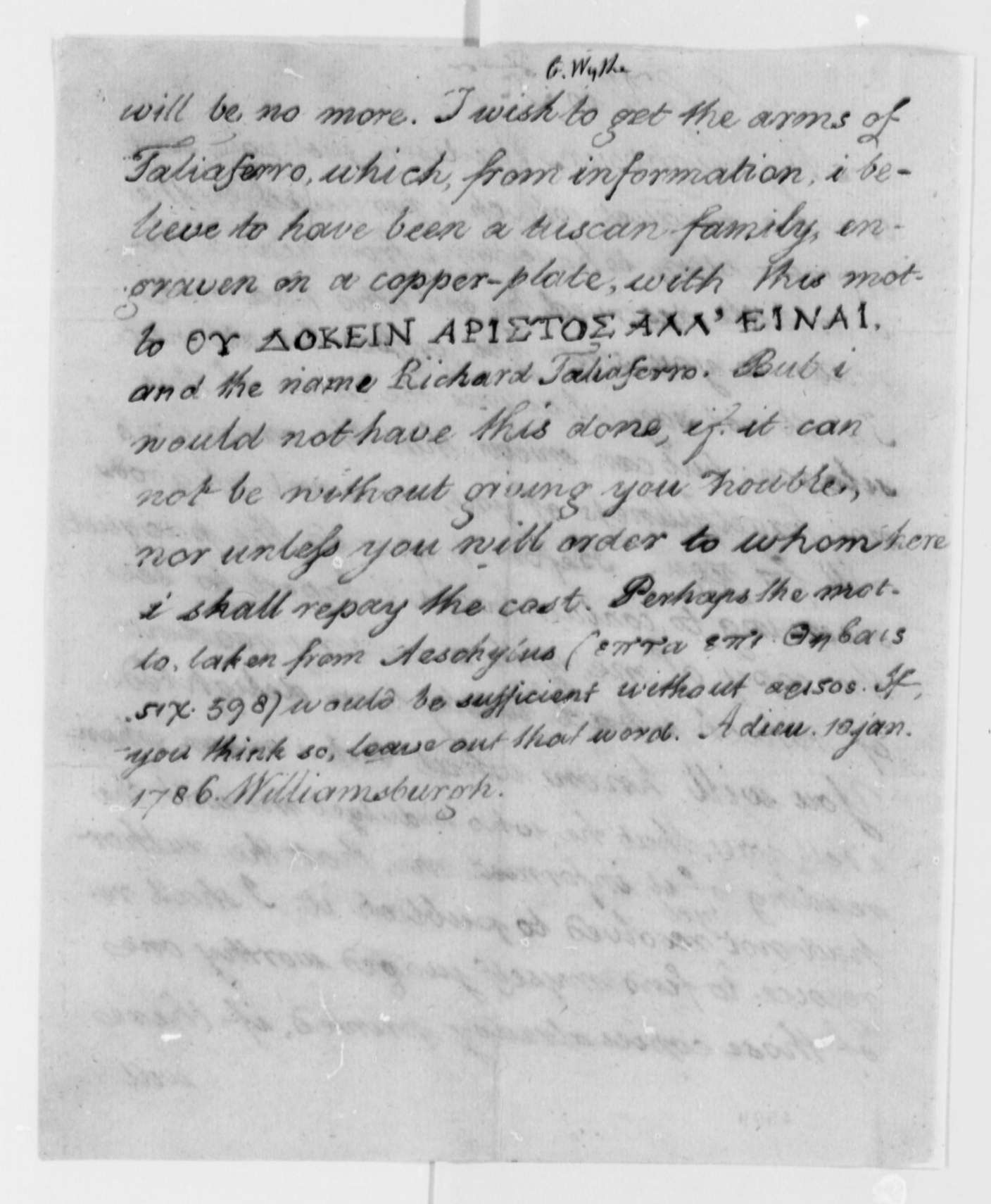Wythe to Thomas Jefferson, 10 January 1786

George Wythe received a package from the Reverend James Madison, containing books presumed to have come from Thomas Jefferson in Europe, but which lacked a copy of Jefferson's Notes on the State of Virginia, though this is not named. Wythe requests if Jefferson could have a copper plate engraved with the Taliaferro family crest and the name of Wythe's father-in-law, Richard Taliaferro, presumably for the making of bookplates. [1]
Letter text, 10 January 1786
Page 1
GW to TJ
My neighbor Madison, just now, sent to me a pacquet, which i perceived by the superscription, to have come from you; a favour little descried by one who had not writen to you since you crossed the atlantic. I will not say what was the cause of this silence; but can swear; that the cause was not forgetfulness of you, nor want of good will for you. Before i opened the pacquet, observing it to contain books, i hoped to see the copy of one, with a cursory reading of which i had then lately been delighted. You will know what book i mean, when i tell you, that he, who indulged me with the reading of it informed me, that the author had not yet resolved to publish it. I shall rejoice to find myself judged worthy one of those copies already printed, if there will

Page 2

will be no more. I wish to get the arms of Taliaferro, which, from information, i believe to have been a tuscan family, engraven on a copper-plate, with this motto Oϒ ΔOKEIN APIΣTOΣ AΛΛ’ EINAI, and the name Richard Taliaferro.[2][3] But i would not have this done, if it can not be without giving you trouble, nor unless you will order to whom here i shall repay the cost. Perhaps the motto, taken from Aeschylus (επτα επι Θηβαις six. 598) would be sufficient without αριστος.[4] If you think so, leave out that word. Adieu. 10 jan. 1786. Williamsburgh.
See also
References
- ↑ "To Thomas Jefferson from George Wythe, 10 February 1786," Founders Online, National Archives.
- ↑ The original copper plate now belongs to Colonial Williamsburg.
- ↑ The line from Aeschylus' Seven Against Thebes concerns the commander Amphiaraus, whose shield bore no sigil, since he is "One who wants to be, not to seem, the best." Wythe's shortening (and leaving out "best") renders the motto, "Not to seem but to be."
- ↑ See also William Buckner McGroarty, "The Taliaferro Family," William and Mary College Quarterly Historical Magazine 4, no. 3 (July 1924), 192.